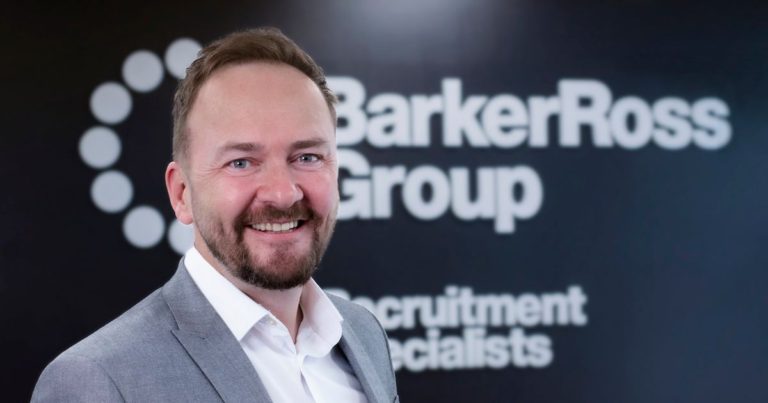
The boss of a busy recruitment business says they are busier than ever due to the big shortage of EU workers caused by Brexit.
Tim Sutcliffe is the managing director of Leicester-based Barker Ross which specialises in sectors ranging from construction to health & social care, logistics and agriculture.
He said: “Brexit changed everything. In my opinion it was the worst decision we as a country ever made.
“A lot of businesses have been built predominantly on a European workforce. Four years ago 90 per cent of entry level food packaging, manufacturing and warehouse operatives were Eastern European. Now I think that’s probably at around 30 to 40 per cent.
“There are all sorts of reasons for that, but one is that it’s harder for them to work here full-stop. Sponsorship is impossible.
“There are still workers here from Eastern Europe but quite rightly they have progressed to better jobs.
“The dynamic has changed. Most companies have now improved pay rates and by doing that they have opened themselves up to a different demographic. So last year it became a case of who pays the most gets the workers.
“I would say that now the majority of companies are paying £10-plus an hour for someone with no experience, compared to £8.50 a couple of years ago.
“At any one time there are about 2,500 people at work through us and up to 3,000 at the busier end of the year.
“Right now we have around 115 staff and we need to be at 125.
“We have managed to fill roles, but there are opportunities that we are not capitalising on and we need to build our teams up in Nottingham and Leicester.
“We need new people in our business at entry level and for us it’s not about experience but attitude.”
Mr Sutcliffe, a Leicester lad who joined Barker Ross as a temp 23 years ago, said turnover was £51 million last year – up £6 million – and this year will hit £59 million-£60 million.
The business, he said, was booming because of that big drop in EU workers, but also due to a combination of good quality service, and companies needing temps despite the pandemic.
Barker Ross is headquartered in the old Leicester Mercury building close to the city’s railway station, with offices in nearby De Montfort Street as well as a presence in Nottingham, London, Lincoln, Milton Keynes, Northampton and Peterborough.
It was founded by chief executive Paul Ross in 1988, who is currently working on building its construction division in Nottingham.
Mr Sutcliffe started out as in warehousing and packing jobs through Barker Ross, before becoming a trainee in the recruitment team itself then working his way up the ladder.
He said: “We are growing and growing at the moment and need more and more people.
“Our business is very face-to-face and a lot of our guys worked through the pandemic because we didn’t slow down at all – we supply a lot of workers to the NHS, food and logistics which all stayed open. Only construction slowed down for a few weeks.
“If anything we got busier and busier during Covid – we survived very well, but did have to adapt.
(Image: Leicester Mercury)
“We cover most of England but try to keep the branch network at a sensible level to avoid too many expensive overheads.
“We’ve also kept our headcount reasonable but have had to increase numbers – we could put 10 new people into Leicester now if we had the time because demand is so high.
“It’s a candidate-led market. There is so much opportunity in the sectors we work in.
“Rightly or wrongly we’ve decided not to put effort into companies that have not adapted to change – for instance, who haven’t helped workers get to work or who are not paying the living wage.
“Rather, we’re working with companies that are trying to see how they can train workers and pay them better. That makes our job a lot easier and is then better for the business.
“We’re going to have the best year we’ve ever had because we’ve got good people – operationally we’ve got more than 20 managers and our staff turnover is ridiculously low.”
He said the business doesn’t work with Amazon though – not because they have anything against them but because if you work for the global online retailer “they can end up becoming your only client”.
He said: “They are a good company, but that wouldn’t be good business for us.
“We want to run a business where our account managers can go home at the end of the day and switch off.
“It’s a very competitive market and we are very fortunate to have got through a difficult couple of years with things going up and up and up. And we need good people to help us continue that.
“Some of our workers have been incredible during the pandemic and that’s not something that would have happened a few years ago.”